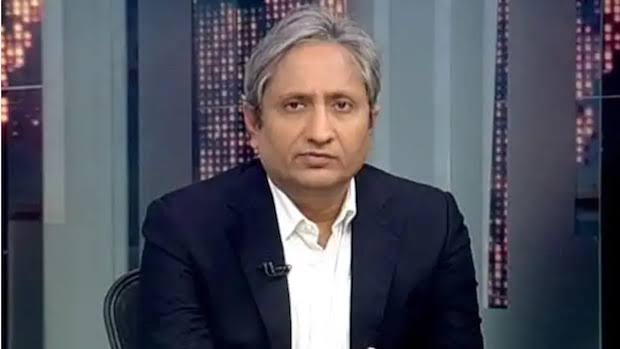New Delhi, June 4: In a candid reflection on the state of journalism, renowned journalist Ravish Kumar addressed the decline of mainstream media and the burgeoning rise of alternative platforms. Speaking to Muslim Mirror, Kumar likened the current media landscape to a collapsing housing society, with people seeking better options as mainstream credibility wanes.
The discussion, which has permeated from professional circles to everyday conversations across India, gains prominence in the context of the upcoming elections. Kumar emphasized the critical role of documenting this shift, citing examples from documentaries and alternative media efforts. His insights come as the focal point of Vinay Shukla’s acclaimed 2022 documentary “While We Watched,” which casts Kumar as the protagonist in its narrative on the media crisis.
With over 10 million followers on YouTube, Kumar’s transition from NDTV India to independent journalism marks a significant chapter in his career. His departure from NDTV in November 2022 followed the company’s acquisition, prompting him to launch his own channel. The move highlights a broader trend of journalists gravitating towards independent and alternative media amidst growing concerns over mainstream practices.
Kumar reflected on the early signs of the crisis in journalism, noting a disturbing trend that has only accelerated in recent years. He underscored the importance of critical journalism and the necessity of presenting unvarnished truths to the public. This approach, he argues, is essential for maintaining the integrity of the profession.
Shukla, whose documentary is streaming on MUBI India, compared his work to the musicians on the Titanic, capturing the poignant reality of journalists striving to uphold their ethics in a challenging environment. The film chronicles Kumar’s daily struggles, his farewells to colleagues, and his relentless pursuit of honest journalism despite mounting pressures.
Kumar acknowledged the invaluable lessons from legacy media but stressed the need for transparency and public awareness about acceptable journalism standards. His commitment to this ethos is evident in his continued efforts as an independent journalist, despite the personal and professional challenges he faces.
Reflecting on his journey, Kumar humorously recounted how he expected the filmmakers to lose interest in his seemingly monotonous life. Instead, they managed to document a deeply personal and professional narrative, revealing the intense and often solitary nature of his work.
As the media landscape evolves, Kumar remains hopeful that this period of scrutiny and documentation will lead to a more honest and transparent journalism practice. His story, as captured in Shukla’s documentary, serves as a testament to the resilience and dedication of journalists committed to their craft in the face of adversity.




